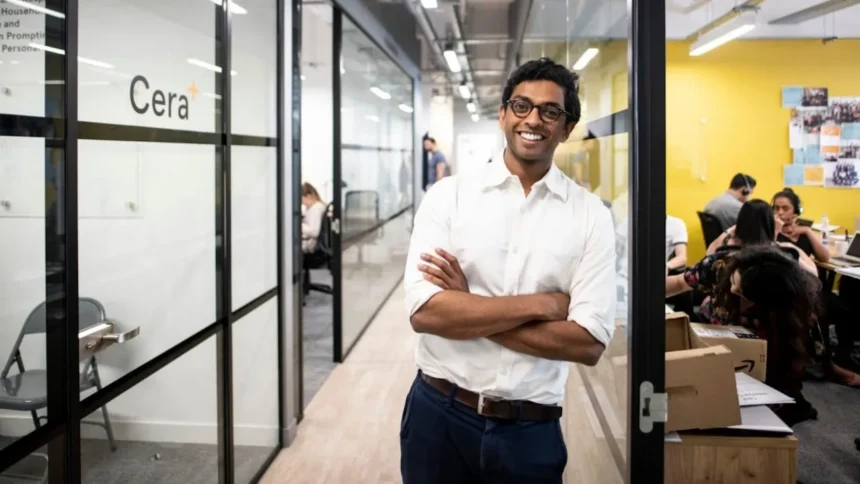Healthcare systems worldwide are grappling with immense challenges post-pandemic. Aging populations, particularly in Western countries, are intensifying pressure on public healthcare services. The UK is no exception, with the National Health Service (NHS) frequently making headlines as it struggles to keep up. Amid this turmoil, private companies powered by cutting-edge technology are stepping in to fill the gaps.
Enter Cera, the UK-based in-home healthcare provider and AI-driven platform, which has just raised $150 million through a combination of debt and equity funding. While the company hasn’t disclosed the exact split between the two, it revealed that the majority of the funds come from debt. This latest round was spearheaded by funds affiliated with BDT & MSD Partners and Schroders Capital, with the aim of scaling Cera’s revolutionary AI-powered platform.
A Tech-First Approach to Healthcare
Cera has positioned itself as a pioneer in leveraging artificial intelligence to transform home healthcare. The company has developed proprietary algorithms using its vast data sets to predict health risks and optimize care delivery. While its AI infrastructure is primarily proprietary, it also integrates select features from platforms like Google’s Gemini AI and Microsoft’s ChatGPT.
The technology underpinning Cera’s platform empowers its carers and nurses with tools to provide better care. For instance, Cera’s app enables staff to log patient symptoms and plan their work efficiently. This unstructured data, such as notes about a patient’s fall during the night, is analyzed by AI models to predict potential health risks. The results are remarkable: the company claims to have reduced hospitalizations by up to 70%, cut patient falls by 20%, and accelerated hospital discharges by a factor of five.
Dr. Ben Maruthappu MBE, Founder and CEO of Cera, shared insights on the company’s impact: “We’re taking pressure off the NHS and creating more capacity for it to look after other patients. Our AI technology enables us to predict over 80% of falls a week before they happen and approximately 83% of hospitalizations a week in advance, leading to significant reductions in both.”
Financial Milestones and Business Growth
Cera’s latest funding brings its total capital raised to over $407 million, combining equity and debt. In 2022, the company secured $320 million in a roughly equal split between the two. Prominent investors include Earlymarket, Guinness Ventures, and DigitalHealth.London Accelerator, as well as seasoned UK investor Robin Klein.

A spokesperson for Cera highlighted the company’s financial health, noting that while public records have yet to reflect it, the business achieved EBITA-positive status in 2023 and became free-cash-flow positive in 2024. “We’re increasingly a self-sustaining business, which is why we were able to secure this debt round,” they added.
Expanding Services for Comprehensive Care
Cera’s ambition goes beyond traditional in-home care. The company has expanded its offerings to include nursing services, physiotherapy, mental health support, and care for individuals with learning or physical disabilities. By covering such a broad spectrum, Cera aims to provide holistic healthcare solutions that meet diverse patient needs.
Today, Cera stands as the UK’s largest HealthTech company, serving approximately 30 million people with a workforce of 10,000 carers and nurses. It collaborates with over 150 local governments and two-thirds of NHS Integrated Care Systems. An independent analysis by UK consultancy Faculty estimated that Cera’s AI-driven model saves the UK healthcare system £1 million daily.
The Competitive Landscape
Cera’s success is a testament to the transformative potential of AI in healthcare, but it operates in a competitive space. In the UK, rivals like Home Instead and Bluebird Care rely on non-proprietary apps for staff management. Across the Atlantic, companies such as Signify Health and Honor are making strides in the US market. Notably, Signify Health and CVS Health have been acquired by Nasdaq-listed CVS Health, while Honor has raised $625 million to date. Despite the competition, Cera’s proprietary technology gives it a distinct edge.
A Vision for the Future
Dr. Maruthappu emphasized the company’s commitment to innovation and patient-centric care: “We’ve built one of the largest home healthcare data sets in the world, definitely the largest in Europe. This allows us to analyze patient data in innovative ways and develop algorithms that anticipate health issues before they arise. Our mission is to make home healthcare safer, more efficient, and more accessible.”
With its focus on AI-driven care, robust financial backing, and expanding service portfolio, Cera is poised to reshape the future of healthcare. As the demand for effective, scalable in-home healthcare solutions grows, Cera’s technology-driven approach could set the standard for the industry.










